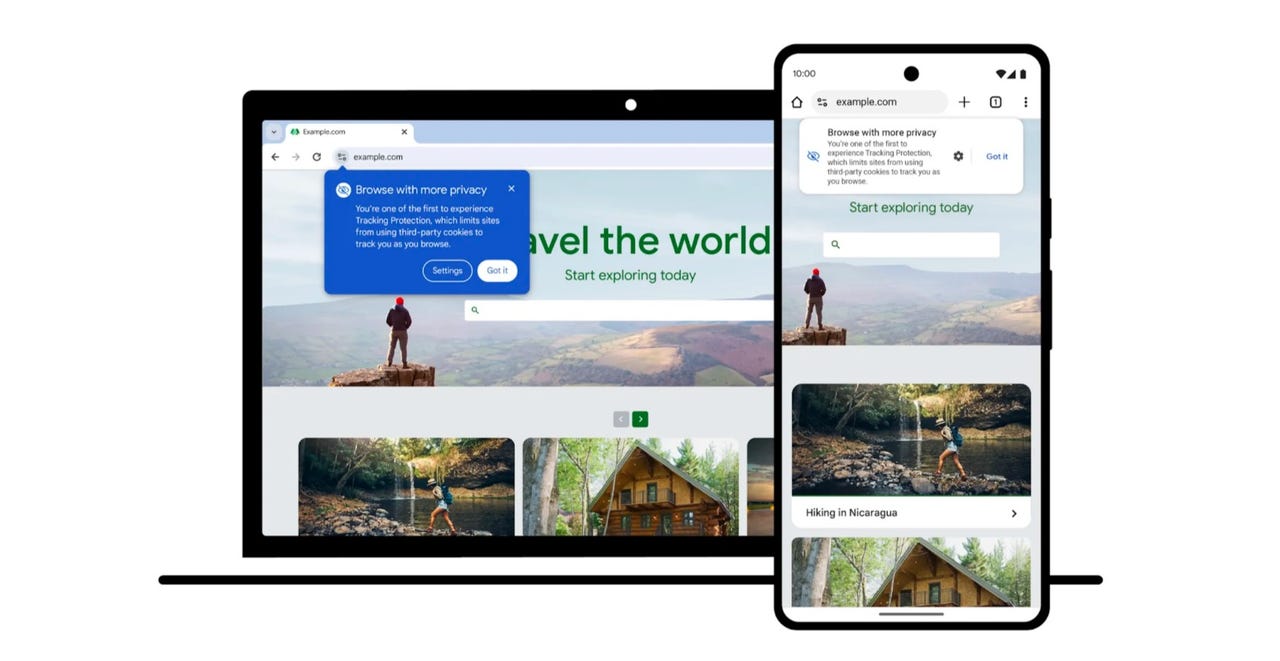
In July of 2022, Google said it would probably be the second half of 2024 before its Chrome browser started phasing out third-party cookies. While that still might be the target date for a full rollout, the initial testing of the cookie-disabling feature isn’t too far off.
Starting January 4, Google says 1% of Chrome users around the globe will acquire “Tracking Protection”, which stops websites from accessing third-party cookies that track users across the web.
Also: Chrome’s new address bar features automatic typo correction, better autocomplete, and more
Users will be randomly selected, according to Google. Chosen users will acquire a notification when they open Chrome on Android or desktop. Tracking Protection will be turned on by default, so there’s nothing to enable.
Of course, Google realizes that disabling cookies might bring about issues, especially early on. If any issues arise and a website doesn’t work without cookies, there will be an option to re-enable them for that particular site. “Less browsing protection” is offered, a warning shows if you disable the protection, “but features are more likely to work as expected.”
That is admittedly a very small fraction of Chrome users, but it’s a nice step in the right direction. The end goal of the Privacy Sandbox, Google said, is to reduce the tracking that occurs across different websites, while still letting those sites work as intended and keeping them freely available to everyone.
Also: These 5 major tech advances of 2023 were the biggest game-changers
Google recognizes that some important features, such as sign-in, fraud prevention, advertising, and third-party embedded content, rely on cookies, but this technology is also a primary enabler of cross-site tracking.
The tech giant says websites using cookies still have plenty of time to run updates, but the company says change is coming: “When it comes to privacy-related changes admire this, we also have to balance that against the best interests of people using the web.”

